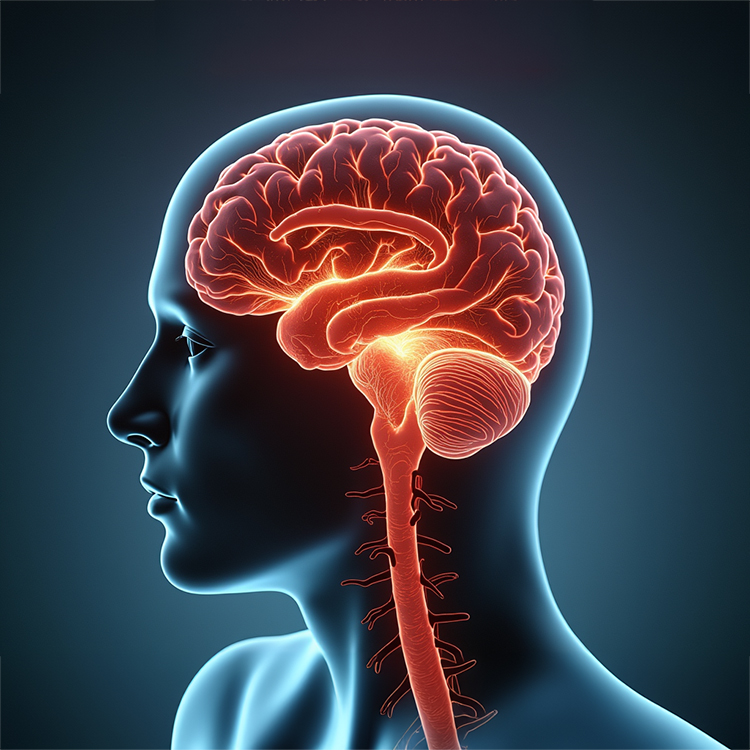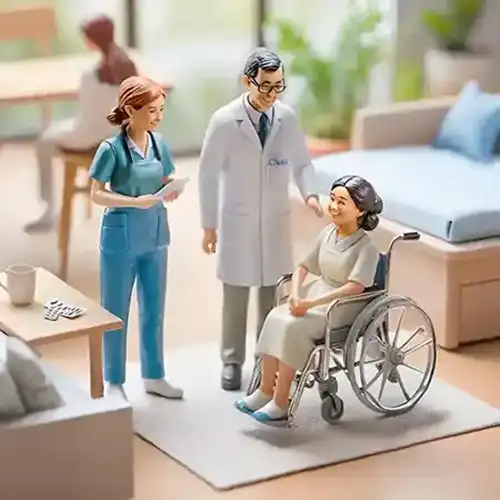
Understanding ALS (Amyotrophic Lateral Sclerosis) in Traditional Chinese Medicine (TCM)
ALS, known as Amyotrophic Lateral Sclerosis, does not have a direct equivalent in Traditional Chinese Medicine (TCM), but it is often categorized under “Wei Syndrome” or “Flaccidity Syndrome.” TCM believes that the disease is related to kidney deficiency, liver blood deficiency, and spleen-stomach weakness. Prolonged physical weakness or qi and blood deficiency may lead to limb weakness and muscle atrophy.
Common Symptoms and Corresponding TCM Formulas
- Kidney Deficiency Type
- Symptoms: Weakness in the limbs, back pain, frequent dizziness, tinnitus, nocturia, and fatigue.
- Formula: Liu Wei Di Huang Wan
- Blood Deficiency Type
- Symptoms: Pale complexion, palpitations, insomnia, frequent dizziness, dry skin, pale tongue, weak pulse.
- Formula: Si Wu Tang
- Spleen-Stomach Weakness Type
- Symptoms: Poor appetite, weakness in the limbs, abdominal bloating, loose stools, weak voice, sallow complexion.
- Formula: Si Jun Zi Tang
- Blood Stasis Type
- Symptoms: Numbness in the limbs, severe pain, purplish skin, dark red tongue, choppy pulse.
- Formula: Xue Fu Zhu Yu Tang
- Qi Deficiency Type
- Symptoms: Fatigue, low voice, shortness of breath, spontaneous sweating, pale tongue, weak pulse.
- Formula: Bu Zhong Yi Qi Tang

Physical Therapy and Exercise:
Regular physical therapy and appropriate exercises can help maintain muscle function and joint flexibility.
Suggestions to Slow Disease Progression
- Early Diagnosis and Treatment: Early detection and treatment, including the use of medications like Riluzole, can slow the progression of the disease.
- Physical Therapy and Exercise: Regular physical therapy and appropriate exercises can help maintain muscle function and joint flexibility.
- Nutritional Management: Maintain a balanced diet, with particular attention to adequate protein and calorie intake to prevent malnutrition.
- Respiratory Support: As the disease progresses, respiratory assistance devices may be needed to maintain normal breathing function.
- Psychological Support: Maintaining a positive mindset and seeking support from family and friends can help stabilize emotions and increase resilience in coping with the disease.
- Medication Therapy: Under the guidance of a professional medical team, medications should be used appropriately, with regular adjustments to the treatment plan.

Psychological Support
Reminder
These methods should be adjusted based on the individual’s constitution and condition and should be implemented under the guidance of a professional medical team. Maintaining good communication with the healthcare team and regularly monitoring changes in the condition are essential for effectively managing the disease and slowing its progression.
Copyright Notice
This content has been compiled by a registered TCM practitioner at Hong Kong Wheelchair King. All rights reserved. Unauthorized use is prohibited.







 在輪椅王,您購買的不僅是一件產品,而是專業醫療團隊為您量身訂製的最佳方案。我們背後的團隊,包含了 職業治療師、護士、營養師、心理學家,家傭公司 等專業人士,如果您需要尋求相關的專業服務,也歡迎聯絡我們。
在輪椅王,您購買的不僅是一件產品,而是專業醫療團隊為您量身訂製的最佳方案。我們背後的團隊,包含了 職業治療師、護士、營養師、心理學家,家傭公司 等專業人士,如果您需要尋求相關的專業服務,也歡迎聯絡我們。
